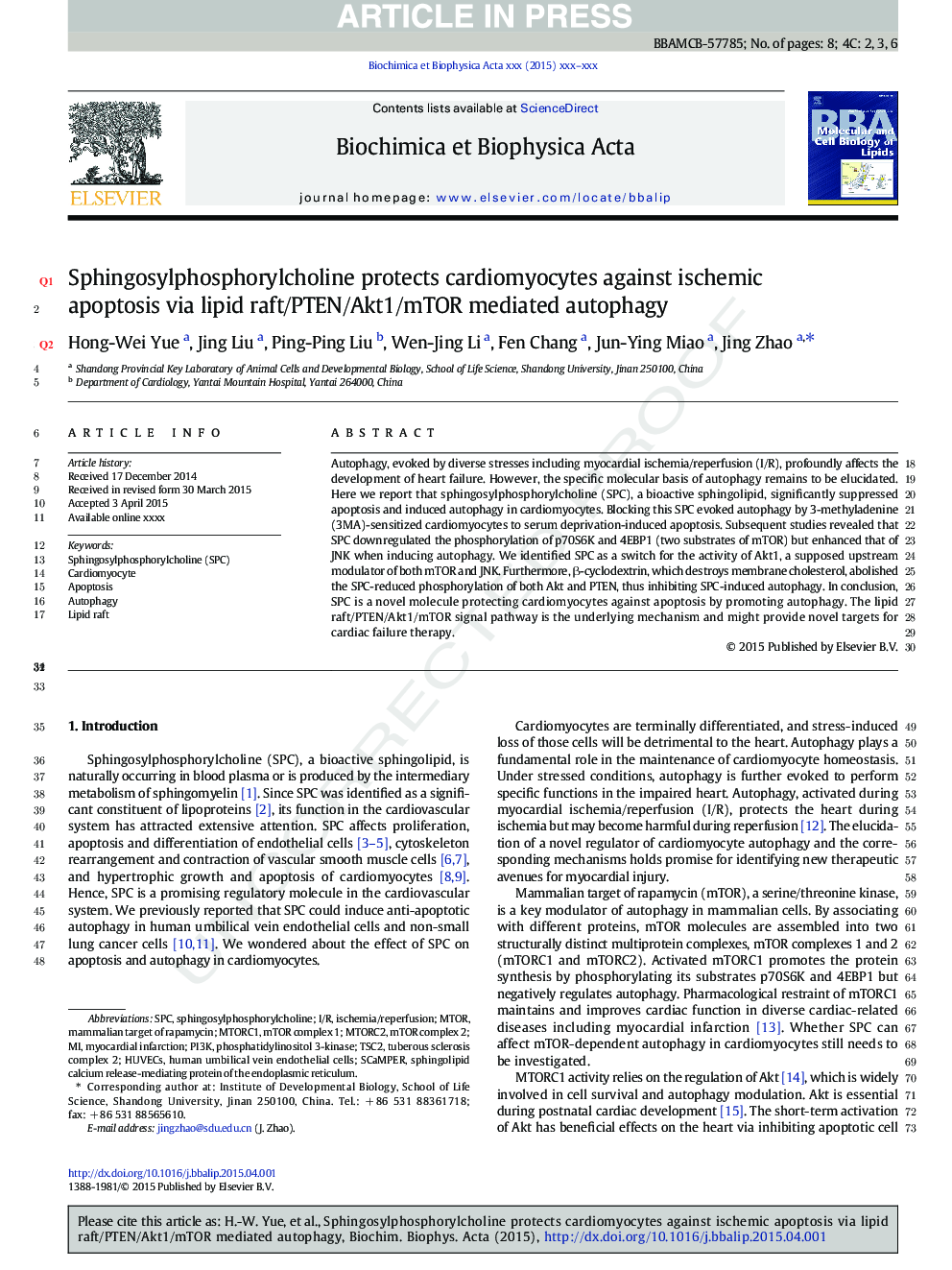| Article ID | Journal | Published Year | Pages | File Type |
|---|---|---|---|---|
| 8301878 | Biochimica et Biophysica Acta (BBA) - Molecular and Cell Biology of Lipids | 2015 | 8 Pages |
Abstract
Autophagy, evoked by diverse stresses including myocardial ischemia/reperfusion (I/R), profoundly affects the development of heart failure. However, the specific molecular basis of autophagy remains to be elucidated. Here we report that sphingosylphosphorylcholine (SPC), a bioactive sphingolipid, significantly suppressed apoptosis and induced autophagy in cardiomyocytes. Blocking this SPC evoked autophagy by 3-methyladenine (3MA)-sensitized cardiomyocytes to serum deprivation-induced apoptosis. Subsequent studies revealed that SPC downregulated the phosphorylation of p70S6K and 4EBP1 (two substrates of mTOR) but enhanced that of JNK when inducing autophagy. We identified SPC as a switch for the activity of Akt1, a supposed upstream modulator of both mTOR and JNK. Furthermore, β-cyclodextrin, which destroys membrane cholesterol, abolished the SPC-reduced phosphorylation of both Akt and PTEN, thus inhibiting SPC-induced autophagy. In conclusion, SPC is a novel molecule protecting cardiomyocytes against apoptosis by promoting autophagy. The lipid raft/PTEN/Akt1/mTOR signal pathway is the underlying mechanism and might provide novel targets for cardiac failure therapy.
Keywords
Related Topics
Life Sciences
Biochemistry, Genetics and Molecular Biology
Biochemistry
Authors
Hong-Wei Yue, Jing Liu, Ping-Ping Liu, Wen-Jing Li, Fen Chang, Jun-Ying Miao, Jing Zhao,
